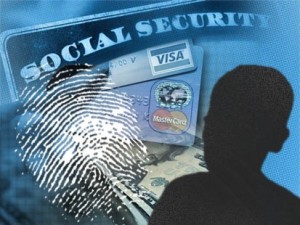Travelers staying in hotels might want to carefully check their credit card statements for fraudulent charges in the months following the stay. According to recent reports, cybercriminals across the globe have a new favorite target: the wireless networks of hotels.
 (From a CreditCardGuide.com article)Â While financial services companies used to receive the bulk of hacker attacks, last year hotels emerged as the new choice target among hackers-out of 218 breaches in a total of 24 countries, 70 of those breaches took place through hotel networks, according to a report by security firm Trustwave SpiderLabs.
(From a CreditCardGuide.com article)Â While financial services companies used to receive the bulk of hacker attacks, last year hotels emerged as the new choice target among hackers-out of 218 breaches in a total of 24 countries, 70 of those breaches took place through hotel networks, according to a report by security firm Trustwave SpiderLabs.
Internet security experts believe that hotel hacking attacks started to catch on at the end of 2008, when a sophisticated cybercrime organization broke into a hotel network to steal information and discovered just how easy it was to do. Even larger hotel chains are often poorly protected against cybercrime dangers, making it very easy for hackers to gain access to one computer and then use it as a doorway into the hotel’s central computer system, from where they can lift the credit card data of guests staying at the hotel along with other sensitive information.
Once hackers have retrieved the data they need, the cybercriminals waste no time turning the lifted credit card information into profit. Using high-tech equipment, hackers can easily clone credit cards, complete with a magnetic strip containing the stolen data. The cards are indistinguishable from the real thing and can be used in physical stores leaving behind few traces that can be used to track down the fraudsters.
It often takes hotels months before they notice the hack-last year, the average time between a security breach and discovery was over five months. In many cases, it is credit card companies, as opposed to the hotel chain, who first notice the unauthorized activity. Long after hackers make off with their bounty, credit card companies triangulating fraud reports discover that multiple individuals affected by fraud stayed at a specific hotel just prior to the credit card theft.
As awareness of hotel data breaches rises, many of the larger chains are stepping in to step up security. However, consumers should remain on alert: hacker’s aren’t about to give up this new lucrative target. Just this week, Wyndman Hotels, which operates chains including Days Inn, Ramada, and Howard Johnson reported its third breach in the past 12 months.
If you travel often or frequent hotels, make sure to monitor your credit card accounts. If strange activity shows up, contact your card issuer immediately. While credit card companies, ultimately, are on the hook for fraudulent charges, you do have to report unauthorized activity, and catching credit card fraud early can save much time and hassle down the road.
http://www.creditcardguide.com/creditcards/travel/staying-hotel-watch-credit-cards-231/
 Fi hotspots put passwords on their Wi-Fi is not to protect the individual, but rather to limit usage…LAN technology evolved years ago for use within organizations where security was never thought to be a major issue. The result is that most of today’s LANs can be hijacked, and all communication can be easily captured and stored on an unseen laptop.â€
Fi hotspots put passwords on their Wi-Fi is not to protect the individual, but rather to limit usage…LAN technology evolved years ago for use within organizations where security was never thought to be a major issue. The result is that most of today’s LANs can be hijacked, and all communication can be easily captured and stored on an unseen laptop.â€



